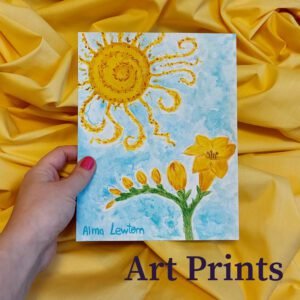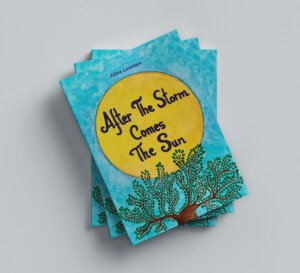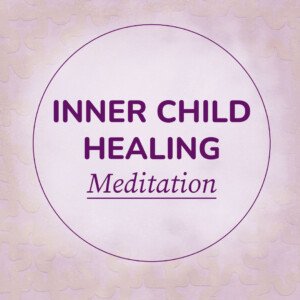
Inner Child Healing (I): Conflict Resolution
In Light of my children’s illustrated book After The Storm Comes The Sun being published soon, I want to deepen the main themes of the story, through this Inner Child Healing Journey.
This journey will take us through 3 important topics: conflict resolution, taking care of difficult emotions, and creating repair after rupture in relationships. We’ll explore these topics through the lens of healing our inner child, and we’ll also apply the wisdom to our relationships.
In this blog post, we’ll discuss conflict resolution. As much as we may not like it, conflicts can arise throughout the course of our lives. While we may not avoid conflict altogether, we can develop the necessary skills to navigate it with more ease, and in such a way that it contributes to our growth and evolution.
Let’s begin:
The Importance of Conflict Resolution
Conflict resolution plays a vital role in ensuring healthy development and wellness on all levels. Unresolved conflicts can affect us emotionally, spiritually, and even physically. Learning to navigate conflicts constructively is important to our overall well-being and happiness.
When it comes to resolving conflicts in a peaceful manner, there are certain essential social and emotional skills that must be developed. These skills include self-regulation, empathy, communication, and problem-solving. By modeling these skills and actively teaching children about them, we empower them to learn to identify and solve conflicts in peaceful ways, that ideally bring win-win solutions.
How To Approach Conflict Resolution
Firstly, I’d like to say that if a conflict occurs, then it must be acknowledged that there is a conflict occurring. Denial and avoidance may be a temporary “solution”, but they are not a true solution. Thus, we must become aware of the conflict and acknowledge it.
Once we do, we can actively work on finding and implementing solutions that are ideally a win-win for everyone involved. Here are a few strategies that can help children develop their conflict resolution skills:
- Create A Map of the Conflict: Write down a statement that clearly and concisely describes the conflict. Add who is involved and what are their needs.
- Encourage Open Communication: Ideally, we’d create an atmosphere where we feel comfortable expressing our thoughts and concerns openly.
- Active Listening: Encourage children to listen attentively to others without interrupting. This helps them understand different viewpoints and fosters empathy.
- Emotional Expression: Teach children to express their emotions in a healthy way, using “I” statements to communicate their feelings without blaming others.
- Problem-Solving: Guide children through the process of brainstorming solutions and evaluating their consequences. Encourage them to find win-win outcomes whenever possible.
- Apologizing and Forgiving: Help children understand the importance of apologizing when they have made a mistake and forgiving others when they apologize.
- Seeking Adult Support: Teach children that it is okay to seek adult help when conflicts escalate and become challenging to resolve independently.
Conflict resolution is not only about individual skills but also about creating a peaceful environment. Parents, educators, and caregivers can contribute to this by:
- Modeling Conflict Resolution: Be a positive role model by demonstrating effective conflict resolution strategies in your own interactions.
- Teaching Respect and Empathy: Foster a culture of respect and empathy by teaching children to value and understand the feelings and perspectives of others.
- Promoting Cooperation: Encourage teamwork and collaboration, emphasizing the benefits of working together towards a common goal.
- Providing Safe Spaces: Ensure that children have safe spaces where they can retreat and calm themselves during conflicts.
Healing Your Inner Child
Unresolved conflict from childhood can impact our lives, in ways that we are not even fully conscious of. For the purpose of this Inner Child Healing Journey, I invite you to reconnect with the child within you.
It may help if you take out a photo of you as a child, and hold it with you while you reconnect with him/her. Ask, is there any conflict from your childhood that remained unresolved and is still influencing your life? What would you have needed for this conflict to be solved? It may be helpful if you use the strategies listed above to help you in this inner exploration.
Sit in silence for a few moments and listen to the child within you. Let her express all there is to express. And then take a piece of paper and write it all down. When you know what would help your inner child feel as if the conflict was resolved, you may consider taking action to do so if it’s appropriate. Then, you can reconnect again and see if she has achieved a sense of resolution.
It may be necessary to repeat this course of action if there are more things to resolve from your childhood. Let your intuition guide you ❤
Learning Conflict Resolution through the Book
Storytelling has always been a powerful tool for teaching valuable life lessons. Through captivating narratives, we can learn about complex topics in an engaging and relatable way.
For this reason, After The Storm Comes The Sun is a great starting point for teaching about conflict resolution. Through the characters’ experiences, and the story of the book, children can learn about navigating and solving disagreements.
Conflict resolution is a crucial skill that contributes to the healthy development of children. By teaching them the art of resolving conflicts peacefully and nurturing a culture of empathy and respect, we equip them with essential tools for a harmonious future. It is my sincere hope that After The Storm Comes The Sun serves as a valuable resource in this journey.
With Peaceful Thoughts,






Comments
No Comments